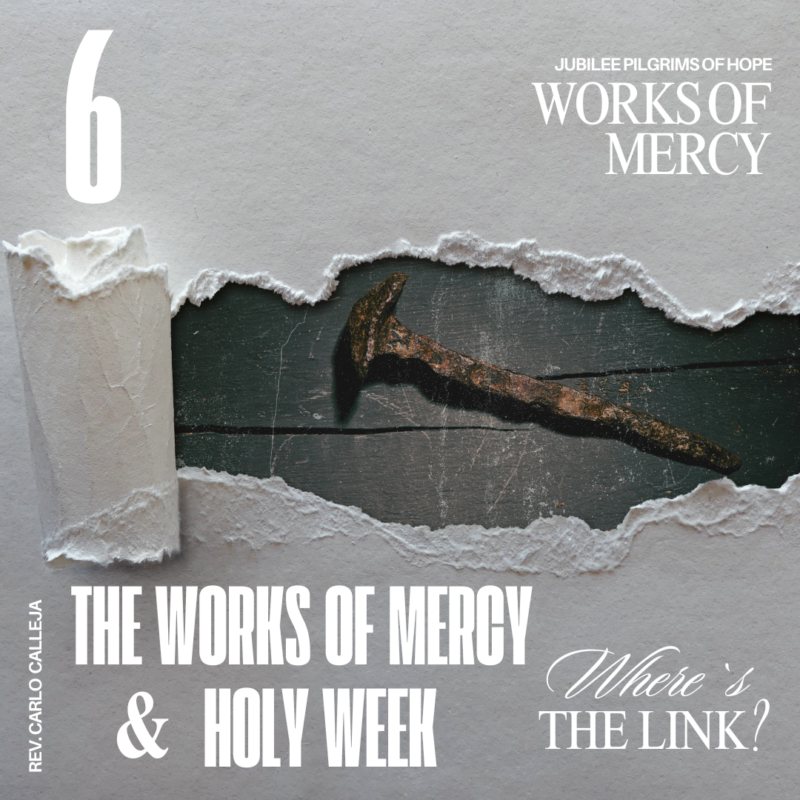Holy Week, the most meaningful eight days in the life of the Church, has finally arrived. Along with our (mine at least!) favourite traditions, the purċissjonijiet tal-Ġimgħa l-Kbira, the qagħaq tal-appostli and the mwejjed tal-Ġimgħa l-Kbira, this week also has a lot to say about how the passion, death and resurrection of Jesus transforms our world. Hear me out.
Love conquers all
Ever felt that the world out there is a scary place? You’re not alone. Literally. The graphic details we read in Jesus’s passion narrative remind us that he did not shy away from our suffering, even that which we afflict on one another, as our newsfeeds remind us.
Jesus showed his love for us in the most practical of ways by dying on the cross, destroying evil once and for all, by entering in solidarity with our suffering and by calling us to follow suit. When we visit an elderly person, or send a WhatsApp message to a friend who we know is passing through a tough patch, we give up something that is ours to share in the suffering of others, reminding them that they are not alone.
A little bit of love, even if expressed just as a smile (or a smiley) can go a long way.
Dare to engage emotionally
As you participate in the liturgy this Holy Week, notice what emotions the liturgy evokes in you.
Just observe, this Palm Sunday, in the long passion narrative from Luke (who was notoriously obsessed with Christ’s mercy) how Jesus prays in the Garden of Gethsemane. He does not actively seek suffering and is even reluctant to accept it at first. He then begs the Father for the grace of patience, to be able to endure suffering when the time comes. Within the same narrative, notice also Jesus’s compassionate look upon Peter after his triple denial. Jesus’s whole life was nothing but a succession of works of mercy towards humankind.
If you will be volunteering in a soup kitchen one of these days or if you will be donating money to charity, make sure to engage emotionally too. Your act of generosity will allow that person to realise they are loved, while transforming you in the process. Otherwise, your efforts are, quite frankly, wasted.
“If you give alms without touching the reality, without looking into the eyes of the person in need,” pope Francis says, “those alms are for you, not for that person.”
Be there even for Judas
This is a tough one, true. But it is key. The Gospels we read on Monday, Tuesday and Wednesday of Holy Week give us a glimpse into the turmoil in the hearts of the apostles, especially Judas.
He who had accepted Jesus’s call to follow him, and who witnessed him first-hand preaching, healing and casting out demons now couldn’t fathom for the life of him why a woman would waste a jar of precious perfume on Jesus instead of giving the money to the poor. The remaining eleven do not utter a word. It is ironic that soon after, he betrays his friend and master for thirty pieces of silver. Still, his friends do not suspect anything. Anyone mentioned poor communication? We know how Judas eventually ended up. And his friends? Crickets!
These first three days of Holy Week never fail to remind me of the importance of checking in with friends of mine. It is not time wasted. Lend an ear. If needed (only if needed) say a word of counsel or advice. Your friends will thank you.
A cardiac U-turn
Let us get this one straight: as Christians, we perform the acts of mercy not because we need more do-gooders (we have enough of those). Neither do we do it because the State is not reaching them (there are NGO’s for that). We engage in the Works of Mercy because Jesus himself told us:
“the least you do to each of these little ones you did to me.”
On the cross we see Jesus hungry and thirsty, stripped of all dignity, an innocent prisoner, bruised and dying, and feeling forsaken even by – wait for it – his own Father. In practical terms, carrying out the works of mercy, as long as they are done not occasionally but as our second nature (remember: those on his right couldn’t even recall when they saw him in need and came to his aid) serve as an antidote for our vices. How about greed in the form of compulsive shopping on your favourite app? Or lust as in mindless scrolling? Or individualism as the classic kuntent-jien-kuntent-kulħadd syndrome? Think of the works of mercy as a kind of spiritual workout, strengthening the attitudes that are ours, as beloved sons and daughters of God, and which draw us to good choices — including political ones!
“This is the night,” we sing in the ancient hymn of the Exultet on Holy Saturday, “that even now, throughout the world, sets Christian believers apart from worldly vices and from the gloom of sin, leading them to grace and joining them to his holy ones.”
Planting hope, welcoming the resurrection
Practicing the works of mercy might begin with the cross but it does not end there. Within these works of mercy there are already the first rays, so to speak, of the Easter Sunday morning.
By practicing the works of mercy, we allow the Spirit of God – the very same spirit that raised Christ from the dead – to be at work in real time, in the world here and now. By dirtying their hands (metaphorically and literally) with the poor, the oppressed and the persecuted, we live in our own flesh and in our own heart the Passion of Christ.
Above all, when we believe that our efforts are not futile and that they will eventually bear fruit, we shine as authentic witnesses of hope and living signs of Christ’s resurrection.



